Dying repeatedly is expected in a roguelite. Even so, The Persistence has an option for you to turn the difficulty down, but it warns you that the game was designed for you to die repeatedly and often. The game’s biggest issue is that it completely leans on this as the main way to extend its playtime. Make no mistake; this is a good game with an interesting premise and tight gameplay. It just shoots itself in the foot at times with arbitrary contrivances that seemingly exist to lengthen the ride.
Escape from planet space
The Persistence tells the story of the titular starcraft. Before the game starts, the entire crew dies horribly. Luckily, one of the crew members, named Serena, has her mind uploaded into the ship’s computer. She then uses the mind of another member, Zimri, to place into a clone body so that she can turn the ship’s vital systems back on to get them home.
Only, this is a survival-horror type roguelite, so things aren’t that simple. The same printer that creates Zimri’s clone body has gone haywire and created mindless killing machines that stalk the decks of the ship. As Zimri, you’ll need to navigate these dangers while restoring the ship’s systems. Every time Zimri dies, The Persistence places her in another clone body and starts her back from the ship’s recovery deck.
There aren’t much in the way of cutscenes in The Persistence. There are brief ones at the beginning and end, plus there are three slightly different endings that you can go back and get if you’d like. Most of the narrative elements are just from Zimri and Serena talking to one another. The dialogue is well-written and the voice acting is strong, so these bits of conversation add a lot of personality and context to the game. The game can either be played in first-person on your monitor or with VR headsets, as it was originally released via PlayStation VR. There isn’t currently motion controller support, however.
No escape
The Persistence is broken up into five objectives, with four of these each taking place on one of the four main decks. Every time you enter a deck via teleporter, its layout is procedurally generated. Each of the objectives is highlighted with a green marker on your map and you simply need to get there and survive whatever hellishness the game throws at you. For instance, the first objective is to restart the ship’s stardrive. You just go to the appropriate section, sneak your way past enemies, and get the thing going again. Once you complete an objective, you then need to find the teleporter to the next deck.
I completed the first two of the game’s main four objectives in just a few hours, so I was expecting The Persistence to be on the short side. However, the game doesn’t show its true colors until deck three. If you’ve played Rogue Legacy or similar games, you’re going to be very familiar with the core gameplay loop here. You go into an area that you are not capable of really surviving to collect resources which you bring back to the start and upgrade your character.
There are two resources in the game: fabrication credits and stem cells. Fab credits are used to create temporary and permanent equipment, while stem cells are used to print new clone bodies and for permanent character upgrades. Both are found scattered throughout the environment, but killing enemies will often have them drop credits while using your harvester to take their stem cells from behind them is the main way to get those.
Survival of the grindiest
Zimri has a lot of tools at her disposal in regards to dealing with The Persistence‘s rampant foes. The permanent character upgrades increase her health, melee damage, sneaking capabilities, and how much dark matter energy she has. Dark matter is used for both sensing the enemies around you for a couple of seconds and for teleporting. These two abilities can be improved by finding and implementing schematics that enemies drop. Or you can find them in supply crates with associated challenges. You can also improve the clone body’s default equipment, such as the harvester and their suit.
You’ll find a few new bodies of crew members whose DNA can be harvested, too. Doing so will allow you to place Zimri’s mind in other bodies with various benefits. It’s free to print Zimri’s body, but the others all cost stem cells. Zimri gets a discount at fabrication terminals on the ship’s decks, while others increase your loot, stem cells harvested, damage, or health.
As for weapons and items, different terminals print guns, melee weapons, grenades, and experimental items. These items are unlocked with Erebus tokens that you’ll find all over. They can also be upgraded with tokens, which drastically increases their price, even if the effectiveness of some isn’t boosted in any tangible way. The weapons offer very few uses once printed. The guns give you practically no ammo and, even if you print a second one, it’ll cost just as much even if you only want the ammo.
Cheap, cheap, cheap
I enjoyed myself a great deal during the first two decks. The subsequent two, while still fun a lot of the time, were much more painful. Getting through these two took me about double the time of the first couple and it was because damn near everything killed me in one hit. Once you complete an objective and get to a new deck, you can teleport to the one whose objective you just completed. This means that you’ll need to make your way back through that deck to get to the one where the next objective waits.
But The Persistence lives up to its name at this point. You need to spend hours scrounging for fab credits and harvesting stem cells to get your health up to respectable levels. And matters are complicated by how arbitrary and cheap many of the game’s systems are. Regardless of which body Zimri’s in, she can’t run. You’re supposed to teleport to move quickly, sure, but it makes no sense for a human being to be unable to run when being chased by monsters. If you run out of a dark matter and a monster’s close on your tail, you’re probably just going to die.
To add insult to injury, while Zimri can carry every single weapon and experimental item at the same time, she can only use medkits as she finds them. She can’t pick up a few to keep on her person just because it arbitrarily makes the game more difficult. Plenty of The Persistence‘s mechanics defy logic in this manner solely to artificially increase the difficulty. It makes the game much more frustrating and time-consuming than it needs to be. But some of the enemy behavior is worse.
See without seeing
The Persistence partially bills itself as a bit of a stealth game, but there are some enemies you simply can’t sneak past. One enemy walks around on all fours and just magically gets alerted to your presence regardless of if he can see or hear you. Another has no eyes and has to locate you through sound alone. But it can bizarrely only hear you when it’s facing you. Sometimes it’ll notice you and start shooting even if you weren’t making any noise or have your stealth up all the way. Teleporting is silent, so he shouldn’t be able to track you once you move, but it somehow can.
Then there’s the teleporting beam woman. She’s only vulnerable immediately after she shoots her beam at you, which takes several entire seconds to finish. You can’t sneak up on her, as trying to harvest her from behind makes her teleport away. And, even if you’re being as quiet and careful as you can, she randomly teleports around and will happen upon you no matter what.
Also, her beam locks you in place, so you can’t move or teleport while being hit by it. For no reason. You need to deflect it with your force field. But the force field makes no sense either. You can only put it up for a second at a time to quickly block enemy attacks, but, when blocking the beam, it can stay up for way longer than usual just because. The shield also takes damage and needs to recharge. So, if you’re beset upon by many foes and you run out of charge, you can no longer block, so you better have a lot of health.
Finally free
Pouring stem cells into permanent upgrades is imperative for surviving these enemy encounters. And doing so massively pads the game. Overall, I enjoy playing The Persistence, but the pacing issues will likely ruin it for some. I know I made it sound like a giant pain (which it certainly can be), but it’s also very satisfying to properly utilize your resources to do cool things like fight a hulking monster simply by teleporting behind it and harvesting its cells once you have enough dark matter to afford the cost of doing so.
The main game will likely take most people about 10 hours, but a campaign plus unlocks afterward that features even more upgrade levels and higher weapon tiers. Plus there’s a mode that limits how many clones you can make, and even a permadeath one for masochists. Anyone that isn’t massively turned off by how illogical The Persistence can be can find a lot to like here. I just wish it didn’t feel like it needed to pad itself out so much solely to extend its length.

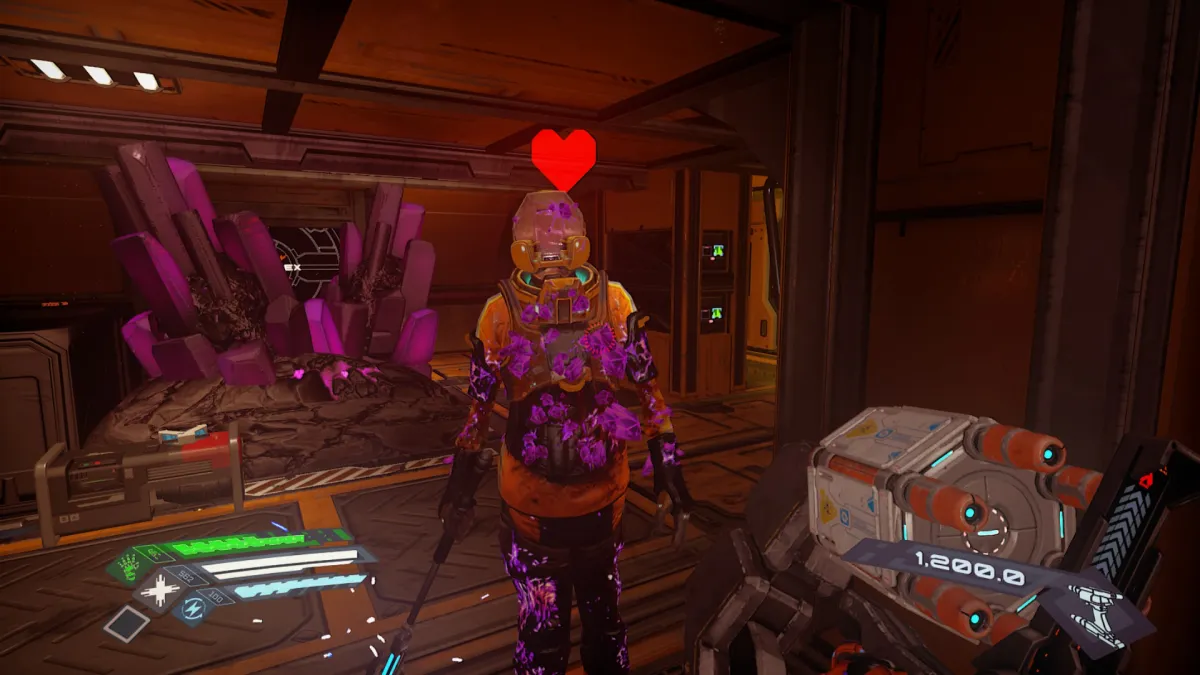

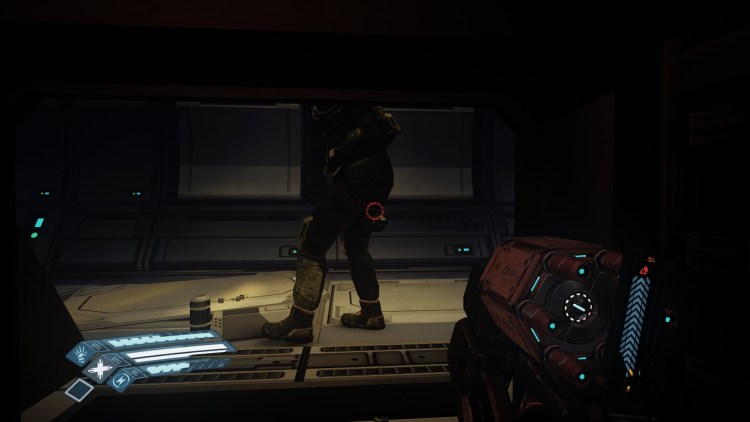
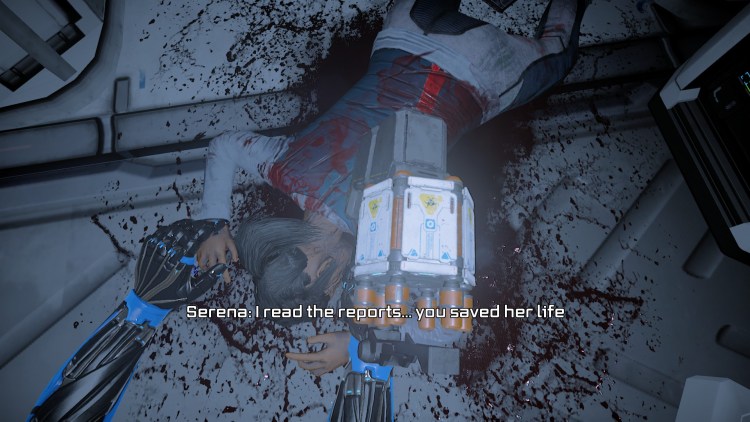
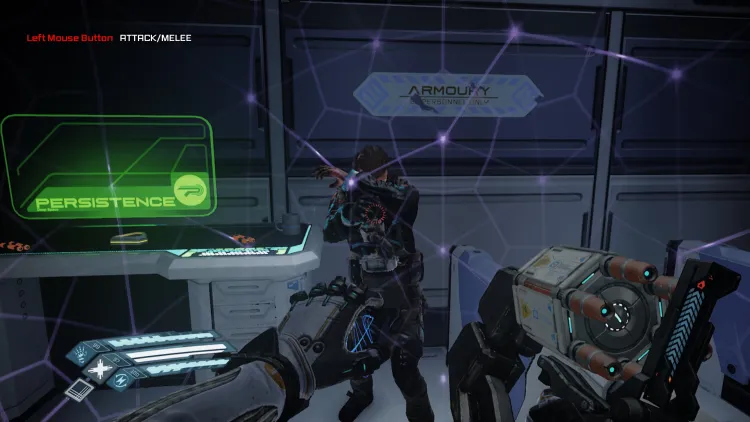
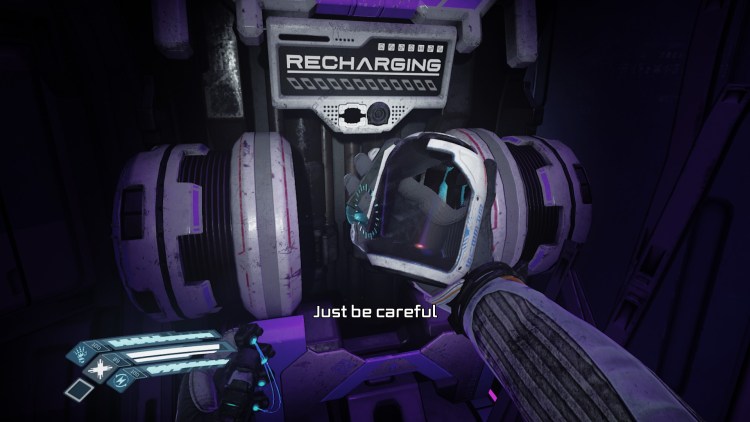
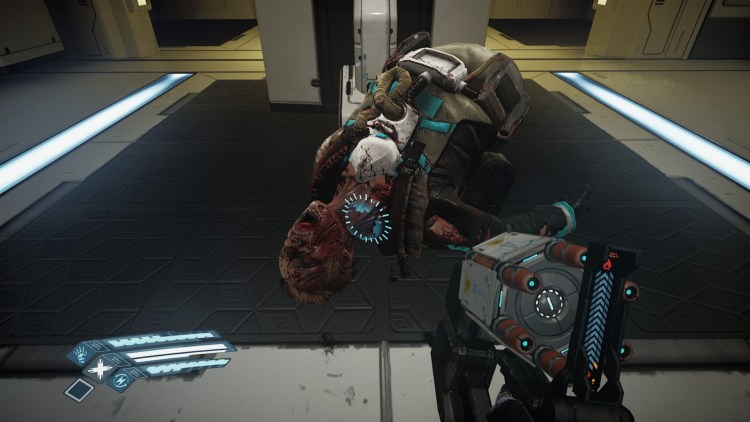





Published: May 20, 2020 09:00 am